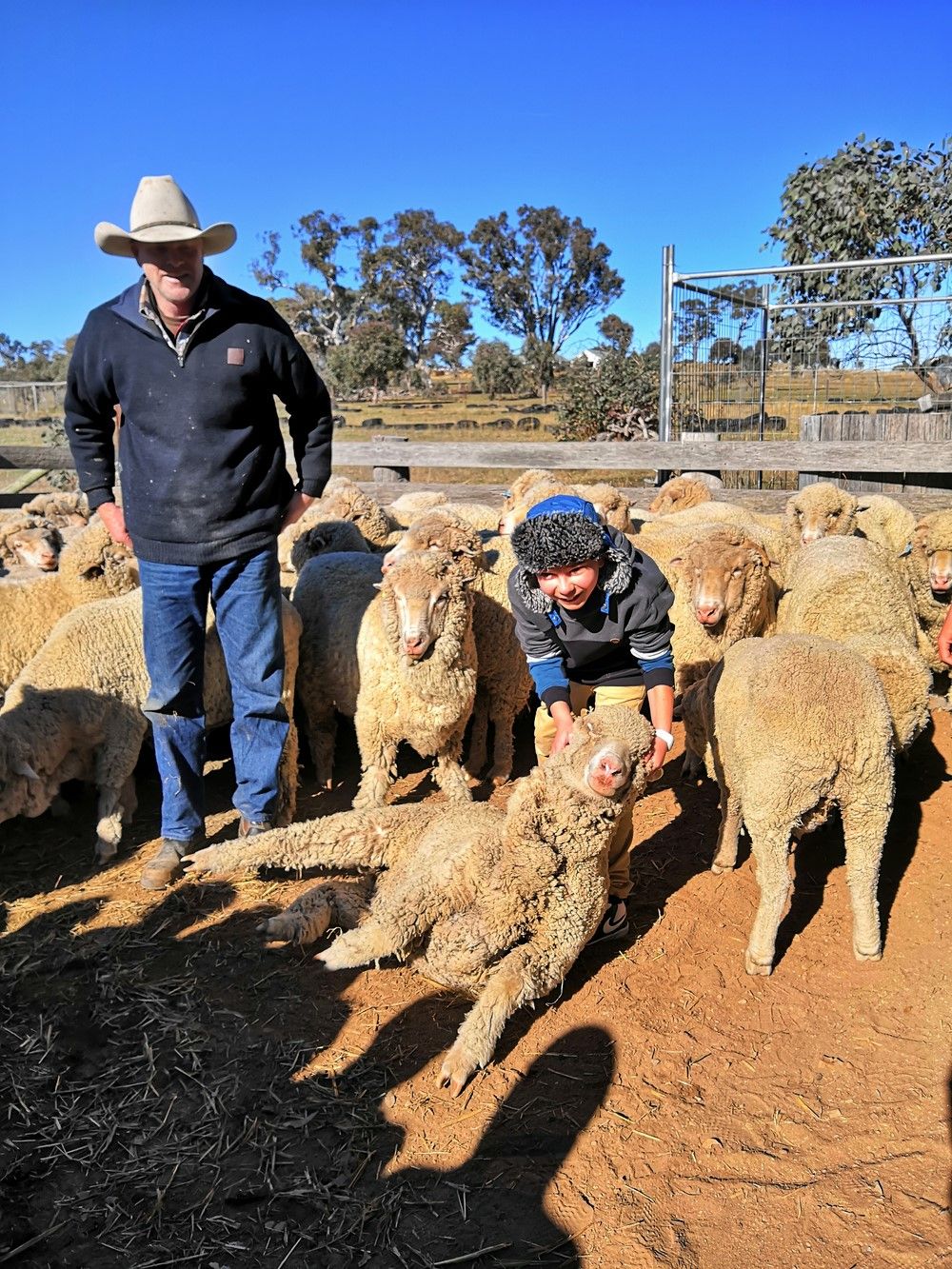 I love stories. Most of us do. The best part of teaching history for me is the stories of people, how they faced the circumstances that they did, and how they often overcame adversity, no matter how great the challenge. That is why it is great to celebrate the 50th anniversary of Rehoboth. Through this, we get to tell a great story of vision, perseverance, sacrifice, and God’s faithfulness as people came together to build something. And their vision was not just to build a school for themselves, but to build it for generations to come. We get to live in their vision and enjoy that blessing, not that it was easy – in fact, it was hard. I hope that this year, we will get to re-live those stories and become familiar with our rich heritage.
I love stories. Most of us do. The best part of teaching history for me is the stories of people, how they faced the circumstances that they did, and how they often overcame adversity, no matter how great the challenge. That is why it is great to celebrate the 50th anniversary of Rehoboth. Through this, we get to tell a great story of vision, perseverance, sacrifice, and God’s faithfulness as people came together to build something. And their vision was not just to build a school for themselves, but to build it for generations to come. We get to live in their vision and enjoy that blessing, not that it was easy – in fact, it was hard. I hope that this year, we will get to re-live those stories and become familiar with our rich heritage.
The problem with stories, though, is that we usually only tell the good ones. We tell the ones that make us look good. I know that I am much more comfortable telling these kinds of stories. The trouble with this is that we are doing a disservice to our listeners. And, I am sad to admit, this often stems from pride. The truth is that we often learn the most from the times when we made mistakes, chose the wrong turn, did the wrong thing. God teaches us most strongly at these times. As parents and teachers, we tell our kids the good stories. If we do this, we present ourselves as people who never did dumb things, never made mistakes, always seemed to cope – and we are setting our kids an example that is not only impossible to live up to, but is also not the truth. Or not the whole truth. Or is this just me?
I was listening to Bill Hybels (Global Leadership Summit CD) the other day, and one of the things I admire about him is not only his wisdom, but how he tells painful stories of the lessons he had to learn in leadership. And, far from judging him, I am amazed at his humility, and how much I admire him for being willing to be vulnerable. I get to learn from him, because I make exactly the same kind of mistakes. Sometimes God gets us to go through stuff, not only for our benefit, but so that our experiences can be used to help others and understand what they are going through.
I always remember writing my first report when I was employed on staff at UWA. I spent months researching traffic, parking and so on for a report with recommendations to go to the Subiaco City Council. It took about two months to compile, with a whole bunch of data and statistics proving the recommendations that I made. I was proud of my report. I thought, “I’ll just give it to my colleague, and he’ll make a few adjustments, and see how clever I am.”
He sent it back a few days later, and I was thankful that he sent it back by internal mail. He had written (in red ink) all over it. Basically, he said it was good, but the City Councillors would not bother to read it. I should simplify it, redesign it with a short summary on the front, put all the data in tables at the back, throw out all the waffle, and run it past a City Councillor to “champion” the recommendations.
At first, I was offended. How dare he? Didn’t he realise how much effort I had put in?
After a day or two of thought I concluded, what was the use of submitting it if no-one would bother reading it? So I spent two days re-writing it and turning it from an academic piece of work into a succinct report. I removed everything that was not essential to the key recommendations. It was surprisingly hard to do. All that good stuff was being chopped out of my baby! More than once, I had to remind myself that my colleague had written dozens of these reports and knew what he was taking about. My ego was deflated. In the end, about 20% of the original remained.
I took it to the City Councillor who my colleague had recommended (an ex-UWA student). He said, “Cut it in half.”
Off I went again, thinking, “How can I do this?” Anyway, I did, and finished it on time and submitted it. It ended up being a couple of pages long, with a longer appendix (with some of the best supporting data). The report made it onto the agenda of the Council meeting, was tabled, one or two of the recommendations were discussed for about 5 minutes, and then it was sent off for costing. Job done!
What did I learn?
- Don’t be afraid to work with people that are cleverer than you and ask them for their honest appraisal. I have discovered many people don’t give you an honest appraisal – they are afraid of hurting your feelings. But that doesn’t actually help you in the end (the story of the “Emperor’s new clothes” makes this point really well).
- Always get someone to proofread your work, and the more honest and meticulous they are, the more your work is improved, and the better off you are. The cool thing about this is that you still get the credit when it is finished.
- Leave yourself time so that adjustments can be made. Do a draft if you have time.
- Don’t be too proud, or lack the self-confidence to ask for help. You have nothing to lose (and listening to their advice doesn’t mean you have to take it).
- But don’t forget to thank those who help and advise you. My colleague had spent hours being ruthless. I visited him afterwards with a gift to thank him – not just for his efforts, but for teaching me a bunch of valuable lessons, which (by the way) have saved me many times afterwards.








